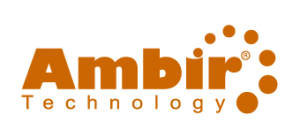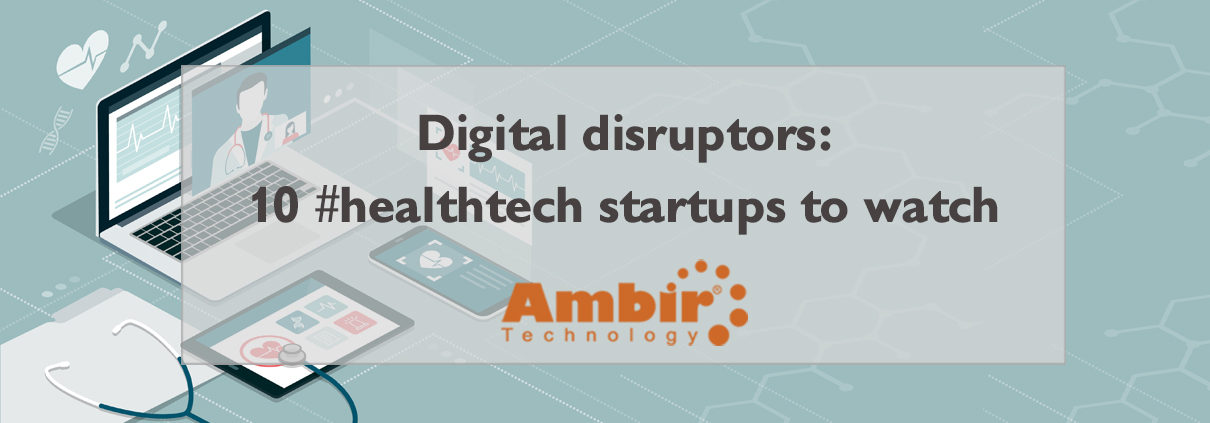Digital disruptors: 10 #healthtech startups to watch
Healthcare technology is one of today’s most rapidly changing industries, driven in large part by a wave of bold, brash startups. New technologies, new ways of using existing technologies, and innovating partnerships between the healthcare, business and technology sectors are changing the industry landscape at lightning speed.
Who is leading the charge? Here are 10 healthtech startups to watch if you want to stay on top of the latest trends.
Here are five of our favourites from the past few years:
1. iRhythm Technologies
iRhythm has developed a unique wearable heart monitor called ZIO – a discreet patch which records and analyses every single heartbeat, whether the wearer is working, sleeping, exercising, or even showering. The information captured helps doctors identify, diagnose and treat potentially life-threatening conditions such as arrhythmias and atrial fibrillation.
2. Glooko
Glooko has positioned itself at the forefront of diabetes care with a unique product which puts valuable information at the fingertips of healthcare providers to ensure better management and treatment. Glooko collects and transmits patient data directly to clinicians from more that 160 compatible blood sugar monitoring devices. The information is presented in standardized graphs and reports, allowing doctors to easily spot anomalies and optimize treatment plans.
3. Omada
Billing itself as a “digital behaviour change program,” Omada is a tech tool designed to help users lose weight, monitor type-2 diabetes, manage hypertension and improve overall health. A tracking app pairs with the company’s “smart” scale, syncing data which is then transferred to an Omada health coach to provide users with personalized health strategies and support.
4. Intuitive Surgical
With lower costs, shortened hospital stays and better patient outcomes, minimally invasive surgeries are the procedures of the future. Intuitive Surgical is banking on that future with its revolutionary daVinci robotic-assisted surgical system. With 3D, high definition vision that provides the surgeon with a magnified view inside the patient’s body, and patented instruments which offer a far greater range of movement than the human wrist, the technology allows surgeons to perform procedures through smaller, less invasive incisions.
5. Evena Medical
Traditionally, healthcare practitioners have relied on experience and feel to locate veins and insert needles. This “trial and error” approach can lead to mistakes and discomfort for patients, particularly those with hard to locate veins. Evena Medical aims to improve the experience for both patients and practitioners with its patented guidance products which provide a clear visual presentation showing precisely where veins are located. Smart glasses, a hands-free mobile vein finder and an ultrasound-powered system allow practitioners to visualize veins from the skin’s surface up to a depth of 100mm.
6. Imagen
Imagen is taking artificial intelligence to the next level, by applying AI to the analysis of medical imaging. Its team of experts believes that cutting-edge diagnostics can be accessible to every patient, everywhere, with AI-driven software that analyses medical images and detects clinically significant pathologies that the human eye may miss.
7. Regroup Telehealth
Technology meets the mental health sphere with RegroupConnect, a virtual mental health care platform. Regroup’s clinicians provide integrated telepsychiatry services to patients and healthcare facilities, and mental health clinicians, making quality mental health care accessible to all, regardless of location. By working with existing physical healthcare facilities and their records systems, the platform allows clinicians to order tests and prescribe medications for their virtual patients, as well as updating patient files via existing EHRs.
8. Prognos
The Prognos promise is a big one: improving health outcomes by predicting disease through data analysis. With access to 16 billion records for 185 million patients, the Prognos registry is the largest such database of clinical diagnostic data from multiple sources. Its AI platform then aggregates and interprets the data to identify risk factors and predict disease across more than 30 difference medical conditions.
9. LifeWIRE
LifeWIRE Group has capitalized on the boom in mobile technology, while addressing a significant gap in patient / provider communication. The platform empowers healthcare providers to engage in ongoing, personalized monitoring and communication with patients through a variety of channels including wearable tech, a mobile app, text, email or voice. The results are significant: a substance abuse case study showed relapse was reduced from 30% to 13% among LifeWIRE users; In a head to head comparison with a call centre, LifeWIRE population completed 100 patient assessments in approximately two hours, versus 172 hours for the call centre.
10. Cohealo
Cohealo has found a way to use digital technology to help solve real-world issues surrounding underused or redundant medical equipment. With research showing that 58% of the time medical equipment sits idle, those lost hours represent lost dollars to healthcare facilities in terms of storage, staffing and maintenance costs. Cohealo’s platform analyses data to pinpoint underused assets and enables the sharing of equipment between facilities to maximize efficiencies and minimize costs.







Leave a Reply
Want to join the discussion?Feel free to contribute!